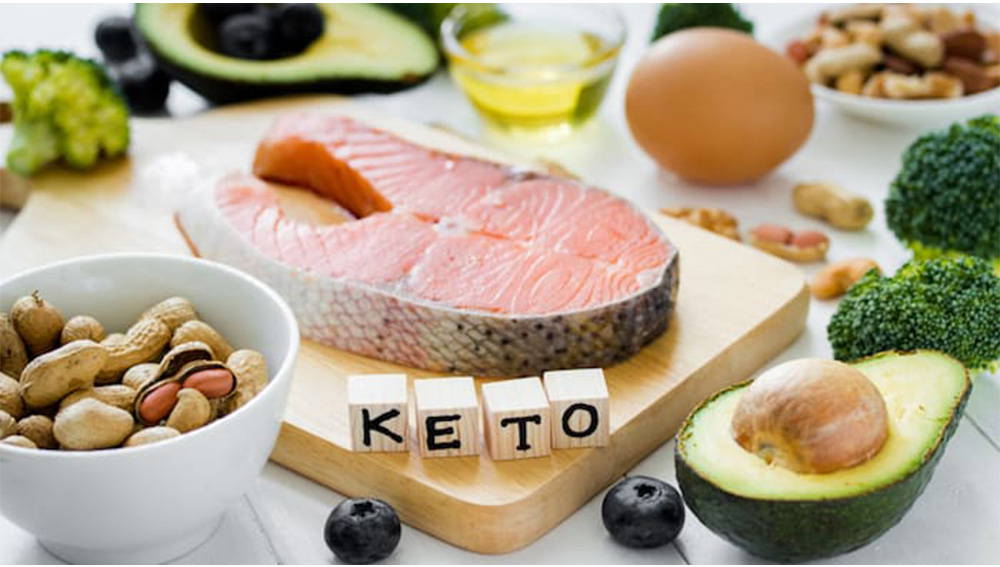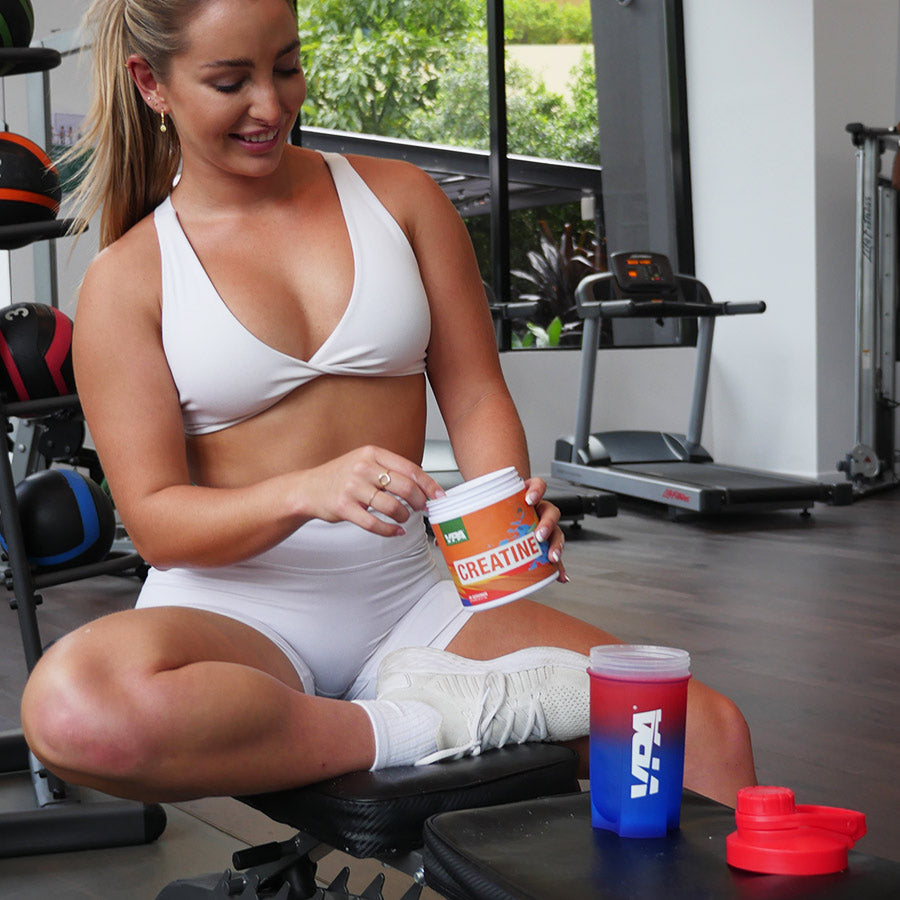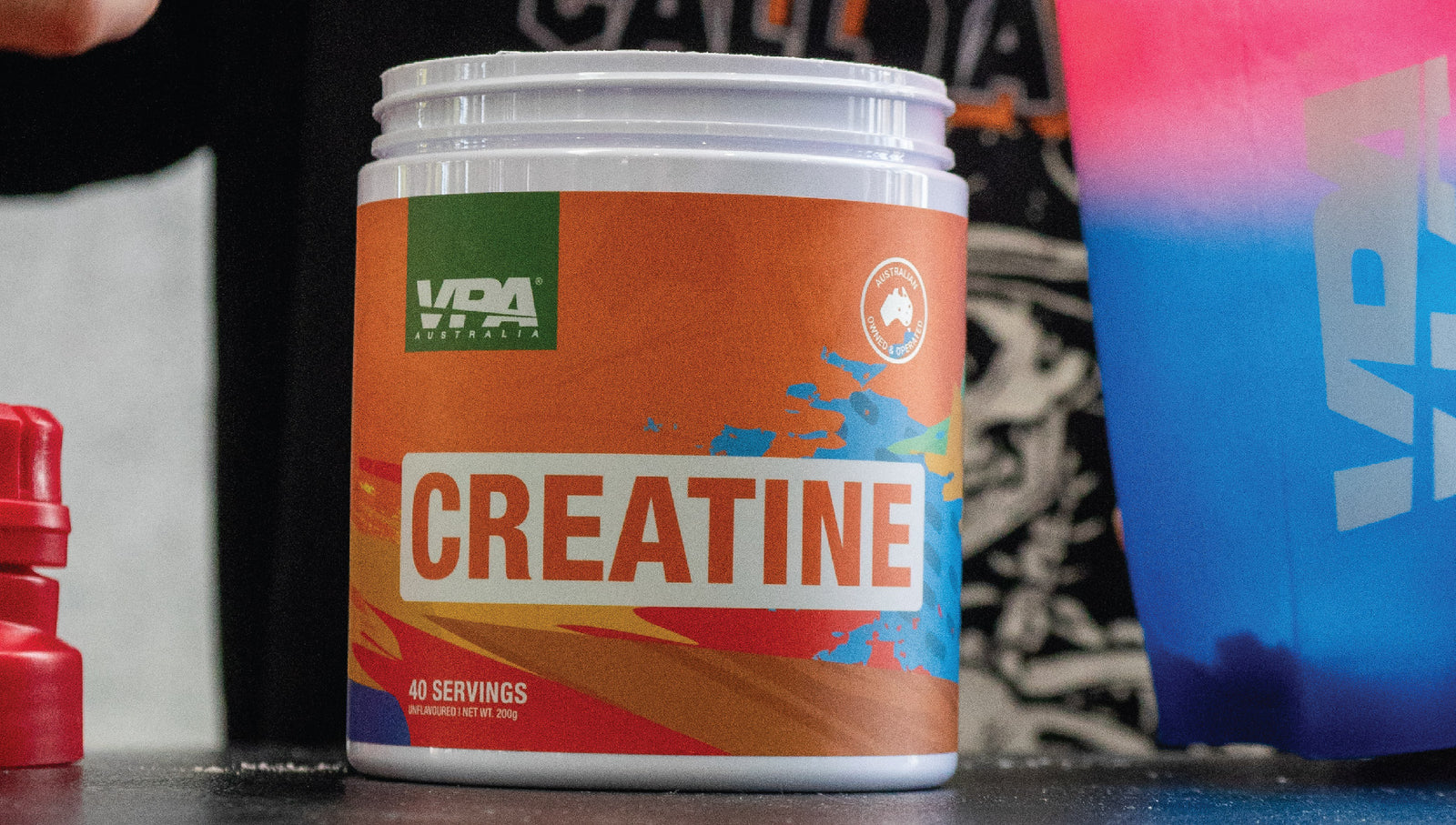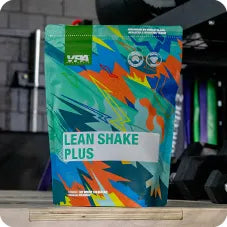- $0.00 AUD Subtotal
11 Best Keto Supplements: What You Need (and What’s Optional)
June 03, 2020 8 min read

TL;DR
The ketogenic (keto) diet is a high-fat, moderate-protein, and low-carb approach that shifts your body into ketosis, where fat is burned for fuel instead of glucose. While effective for weight loss and energy, the drastic carb reduction can cause side effects like dehydration, electrolyte imbalance, nutrient deficiencies, and the not-so-wanted “keto flu.”
In such a scenario, specific supplements can make the transition smoother, support performance, and fill nutritional gaps.
The essential keto supplements are:
-
Electrolytes (sodium, potassium, magnesium): Reduce keto flu, fatigue, and cramps.
-
MCT oil: Boosts ketones, energy, and mental clarity.
-
Protein powder: Preserves lean muscle and aids recovery.
-
Omega-3 fatty acids: Balance inflammation and support heart and brain health.
-
Multivitamins: Cover micronutrient gaps from restricted food choices.
Optional but helpful: exogenous ketones (quick ketone boost), BCAAs (muscle recovery), creatine (strength and performance), and collagen (joint and skin support).
The conclusion is: You don’t really need every supplement, but essentials like electrolytes, MCT oil, protein powder, omega-3s, and a multivitamin make keto easier, healthier, and more effective, especially for weight loss, energy maintenance, and exercise recovery.
Estimated reading time: 7-8 minutes
Why Supplements Can Help on Keto
What is a ketogenic diet?
The ketogenic diet is a high-fat, moderate-protein, low-carbohydrate approach that prompts the body to enter a metabolic state known as ketosis. 1 In this state, fat becomes the primary source of energy, rather than glucose. When glucose availability drops, the endogenous breakdown of glucose cannot provide sufficient energy (ATP), and the metabolic pathway switches to ketone bodies as the primary energy source (ketogenesis). 2
While this can aid in weight management and improve metabolic health, the drastic reduction in carbohydrates creates physiological changes that impact hydration, electrolyte balance, energy levels, and overall health.
When carbohydrate intake is limited, glycogen stores are depleted quickly. Glycogen binds to water, so as it breaks down, water is also lost. Along with water, essential electrolytes such as sodium, potassium, and magnesium are also flushed out. This leads to symptoms akin to a flu, including headaches, dizziness, fatigue, and muscle cramps, commonly referred to as the “keto flu.”
Furthermore, avoiding carb-heavy foods like fruit, legumes, and certain vegetables can reduce micronutrient intake. While these foods aren’t essential for ketosis, they are valuable sources of vitamins, minerals, and fibre.
-
Here is where keto diet supplements step in: to bridge these nutritional gaps and provide a much-needed boost for those navigating the challenges of a keto diet, especially for those exercising on a keto diet.
-
The shift from glucose to fat as the primary energy source can temporarily reduce strength and endurance. Strategic supplements, such as creatine monohydrate, electrolytes, MCT oil, BCAAs, and collagen, help sustain energy levels and support recovery, and are considered the best keto supplements for weight loss.
5 Essential Keto Supplements
Electrolytes (Sodium, Magnesium, Potassium)
Electrolytes are minerals carrying an electric charge that flow through the body to support physical activity and maintain cardiovascular health. Electrolytes are critical for maintaining fluid balance, muscle contractions, energy, and nerve signalling. They are rapidly lost during the early stages of the keto diet. When electrolyte balance is off, you are more prone to fatigue, muscle cramps, poor sleep, and loss of alertness. 3
-
Sodium: On a keto diet, the kidneys excrete more sodium due to lower insulin levels. 4 This increases fatigue and headaches. Adding sea salt to meals or consuming an electrolyte powder helps replace losses.
-
Magnesium: Supports energy production, sleep, muscle contraction, and muscle relaxation. Many adults already fall low on magnesium levels, and keto can increase this.
-
Potassium: Potassium keeps your heart beating by controlling electrical signals to the heart. In short, it helps regulate blood pressure and heart rhythm. 5 Keto-friendly foods like avocado, spinach, broccoli, and mushrooms provide potassium, but some individuals may require supplementation.
Aim for at least 3,000-5,000 mg of sodium, 3,000-4,000 mg of potassium (from diet plus supplements), and 300-500 mg of magnesium daily on a ketogenic diet. 6
Electrolyte supplementation can significantly reduce the symptoms of keto flu and support optimal exercise performance.
MCT Oil
MCT stands for Medium Chain Triglycerides (MCT). MCT is a type of fat that has a shorter chain length (6-12 carbon atoms), compared to most dietary fats, thus aiding better digestion.
MCT oil is usually made from coconut or palm kernel oil. 7 These are fats digested differently from long-chain fats. They are transported directly to the liver, where they are converted into ketones, providing a rapid energy boost.
The benefits of MCT oil are as follows:
-
Helps maintain ketosis even if carb intake slightly increases.
-
Provides mental clarity and sustained energy.
-
It may help control appetite by increasing the levels of satiety hormones.
Start with a teaspoon and increase gradually to avoid digestive discomfort. Many people add MCT oil to coffee, smoothies, or salad dressings.
MCTs elevate ketone levels and improve energy availability in ketogenic diets.
Protein Powder
Protein is vital for preserving lean muscle mass, and on keto, people sometimes undereat protein for fear of being knocked out of ketosis. However, sufficient intake is critical, and protein powdercan play a crucial role in this, providing a sense of security and confidence in your keto journey.
Protein Powder Facts:
-
Whey isolate and casein are excellent low-carb choices.
-
Collagen protein is supportive but incomplete, so it’s best combined with whey or plant-based options.
-
Plant-based protein powders (pea, hemp, rice) can also fit into keto if low in carbs.
Supports recovery after workouts, reduces hunger, builds lean muscle, and prevents muscle breakdown.
Higher protein intake on keto improves body composition while maintaining ketosis.
Omega-3 Fatty Acids
Omega-3s (EPA and DHA) are crucial for heart, brain, and joint health, and understanding their importance empowers you to make informed decisions about your keto diet.
Many keto diets lean heavily on animal fats that are high in omega-6, creating an imbalance. A healthy ratio of omega-6 to omega-3 appears to be between 1-to-1 and 4-to-1. However, typical Western diets may increase this ratio to 15:1, putting individuals at a high risk of inflammatory diseases.
Details:
-
A high omega-6 to omega-3 ratio promotes inflammation.
-
Supplementing with fish oil or algal oil helps restore balance.
-
Target 1-5 grams daily of combined EPA/DHA. 8
Omega-3 supplementation lowers triglycerides and reduces inflammation markers, with 4 grams being a recommended dosage for people with high triglycerides.
Multivitamins
A high-quality multivitamin ensures coverage for micronutrients that may be lacking on a keto diet.
-
Focus on vitamins D, B12, folate, and trace minerals like selenium and iodine.
-
Keto restricts fruit and grains, both of which are rich in micronutrients. A daily multivitamin fills nutritional gaps without adding extra carbohydrates.
Keto vitamins reduce nutrient deficiency risk in such restrictive diets.
Optional (But Useful) Keto Supplements
Exogenous Ketones (BHB Salts/Esters)
These supplements raise ketone levels in the blood, mimicking ketosis.
Details:
-
Helpful during the first week of keto when adapting.
-
May improve energy and reduce brain fog.
-
Often used by athletes as a quick source of ketone fuel.
Ketogenic diets (KDs) that elevate beta-hydroxybutyrate (BHB) promote weight and fat loss. Exogenous ketones, such as ketone salts (KS), also elevate BHB concentrations, potentially protecting against muscle loss during caloric restriction. 9
BCAAs
A BCAA supplement contains leucine, isoleucine, and valine: amino acids that reduce muscle breakdown and promote muscle repair.
-
Useful during fasting or intense training sessions.
-
Supports recovery when total protein intake is low.
-
Provides an energy source without spiking insulin significantly.
BCAAs support lean mass preservation in calorie deficits.
Creatine
Creatine monohydrate is one of the most researched performance-enhancing supplements.
-
Enhances strength, power, and muscle endurance.
-
Helps replenish ATP energy during high-intensity exercise.
-
Standard dose: 3-5 grams per day.
Creatine is consistently shown to boost performance, preserve lean body mass, and repair muscle.
Collagen
Collagen protein supports skin elasticity, joint health, and connective tissues.
Details:
-
Not a complete protein, but ideal alongside whey or casein.
-
Reduce joint discomfort and improve recovery in active gym-goers and athletes.
Thus, regular supplementation of collagen improves joint comfort and reduces injury risk.
How to Choose Quality Keto Supplements
When selecting supplements, look for these qualities:
-
Low or no carbs: Avoid maltodextrin, dextrose, or hidden sugars.
-
Third-party tested: NSF, Informed-Sport, or HASTA-certified for safety and purity.
-
Transparent labels: No proprietary blends hiding ingredient amounts.
-
Reputable brands: Choose brands like VPA Australia that come with research-backed formulations and good reviews.
Match supplements to your goals. Beginners often benefit most from electrolyte powder and MCT oil. Athletes may prioritise creatine monohydrate and BCAA supplements.
Try VPA’s premium sports supplements. VPA meticulously blends and packs all its products in-house, ensuring the highest quality and purity. Both their warehouses are export-quality, ISO and HACCP certified, guaranteeing the highest hygiene standards in Australia. VPA products are not only third-party lab tested and athlete-safe, but because of this, we are also a proud official supplement provider to some of Australia's leading sports teams.
Safety and Side Effects
-
Electrolytes: Too much potassium can be dangerous; stay within safe ranges.
-
MCT oil: Large amounts may cause diarrhoea or cramps. Start small.
-
Protein powders: Some contain fillers; opt for clean, low-carb blends.
-
Exogenous ketones: Can cause digestive upset and are not essential.
-
Creatine: Generally safe for healthy adults. Maintain hydration.
Always consult a healthcare professional before starting new supplements, especially if you have kidney, heart, or metabolic conditions.
Final Word: Do You Really Need Keto Supplements?
Fact is: you don’t need a shelf full of supplements to succeed on keto. But carefully chosen keto supplements can make the process easier, more effective, and healthier. At minimum, most people benefit from electrolyte powder, MCT oil, protein powder, omega-3 fatty acids, and keto vitamins. These essentials help combat the keto flu, fill sudden nutritional gaps, and improve energy levels, making them some of the best keto supplements for weight loss.
Optional additions, such as creatine monohydrate, a BCAA supplement, or collagen protein, can be beneficial if your focus is on exercise performance, muscle recovery, or joint health. Ultimately, supplements are tools: they support your keto journey but don’t replace the foundation: a balanced, nutrient-rich, carefully-followed ketogenic diet.
FAQS
Do I need supplements to succeed on keto?
Not necessarily. However, keto diet supplements help alleviate common issues such as keto flu, nutrient deficiencies, and energy fluctuations.
What helps most with keto flu?
Electrolytes, particularly sodium, magnesium, and potassium, are most beneficial for alleviating the keto flu. An electrolyte powder is the fastest fix.
Should I take exogenous ketones to speed up results?
They raise ketone levels temporarily. But again, they’re optional, not essential.
What’s the best protein powder for keto?
Whey isolate, casein, or low-carb plant-based options are best. Avoid powders with added sugars or maltodextrin.
Can supplements knock me out of ketosis?
Most supplements don’t, unless they contain elevated levels of hidden carbs or sugars. Always check for fillers and sweeteners, and choose keto supplements from trusted brands like VPA Australia.
References:
-
Mawer R, Richter A. The Ketogenic Diet: A Detailed Beginner’s Guide to Keto. Healthline. Updated November 7, 2023. https://www.healthline.com/nutrition/ketogenic-diet-101. Accessed September 5, 2025.
-
Masood W, Annamaraju P, Suheb MZK, Uppaluri KR. Ketogenic diet. In: StatPearls. Treasure Island (FL): StatPearls Publishing; 2023. Updated June 16, 2023. https://www.ncbi.nlm.nih.gov/books/NBK499830/. Accessed September 5, 2025.
-
Gustin A. Electrolytes on keto: benefits, how to meet them, and more. Perfect Keto. Published April 2, 2025. https://perfectketo.com/electrolytes-on-keto/. Accessed September 5, 2025.
-
Rodal R. Keto electrolytes: tips and concerns. Ketone. Updated November 15, 2019. https://ketone.com/blogs/blog/ketosis-keto-electrolytes-tips-and-concerns. Accessed September 5, 2025.
-
Yamut TJ. Electrolytes on keto: benefits, how to meet them, and more. Perfect Keto. Published April 2, 2025. https://perfectketo.com/electrolytes-on-keto/#:~:text=When%20you%27re%20transitioning%20to,enough%20electrolytes%20in%20their%20diet. Accessed September 5, 2025.
-
Phinney S, Virta Health. How much sodium, potassium and magnesium should I have on a ketogenic diet? Virta Health. https://www.virtahealth.com/faq/sodium-potassium-magnesium-ketogenic-diet. Accessed September 5, 2025.
-
Wiginton K, Key AP. MCT oil. WebMD. https://www.webmd.com/diet/mct-oil-health-benefits-common-uses. Published July 4, 2024. Accessed September 5, 2025.
-
Hjalmarsdottir F. How much omega-3 should you take per day? Healthline. July 13, 2023. https://www.healthline.com/nutrition/how-much-omega-3. Accessed September 5, 2025.
-
Buga A, Kackley ML, Crabtree CD, et al. The effects of a 6-week controlled, hypocaloric ketogenic diet, with and without exogenous ketone salts, on body composition responses. Front Nutr. 2021;8:618520. doi:10.3389/fnut.2021.618520

Megan Jolly
Also in Supplements

Collagen for Tendon Repair: Can Supplements Support Recovery?
September 11, 2025 7 min read
Read More
What Is Creatine Monohydrate? Benefits, Safety & How to Use It
September 10, 2025 7 min read
Read More
How Is Creatine Made? (Natural, Synthetic & Quality Standards Explained)
September 10, 2025 7 min read
Read More Recent Articles
- Collagen for Tendon Repair: Can Supplements Support Recovery?
- What Is Creatine Monohydrate? Benefits, Safety & How to Use It
- How Is Creatine Made? (Natural, Synthetic & Quality Standards Explained)
- What’s the Best Creatine in Australia? Here’s Why Monohydrate Still Reigns Supreme
- What Is Whey Protein? A Beginner’s Guide
- 7 Best Protein Powders in Australia (Taste-Tested August 2025)
- Why Does Beta‑Alanine Cause Tingling? (What’s Behind the Beta‑Alanine Tingle)
- How to Use Protein Powder to Maximise Your Results: A Beginner’s Guide
- 15 Pre-Workout Snack Ideas to Maximise Your Training
- Is Creatine Vegan? What Plant-Based Athletes Need to Know












